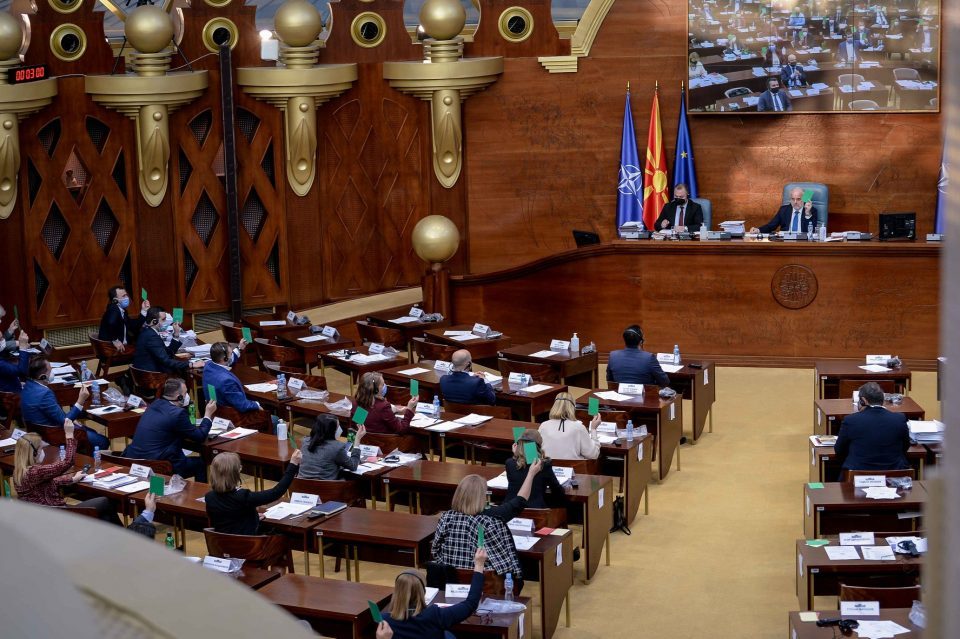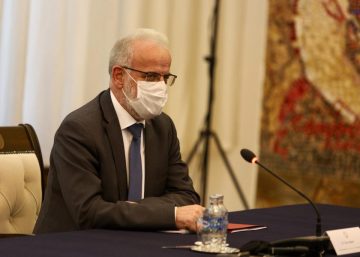In the Parliament, the ruling majority will make another attempt today to reach the quorum of 61 votes needed to hold a session – after months of serious difficulties during which little of the legislative agenda got done.
Three members of Parliament from the majority are sick with Covid-19, meaning that the SDSM – DUI – BESA coalition, which only has 62 votes, needs to rely on the opposition just to convene a session. And the opposition parties have said they will not provide the quorum, unless for issues that surpass partisan interests and are of national importance.
On the agenda today are bills to pride loans with the World Bank and the IBRD for energy efficiency programs, as well as the plan to introduce high speed bus lanes in the capital Skopje.
Another issue on the agenda is the very controversial citizenship law, which the Albanian opposition parties proposed that would even further relax citizenship requirements for ethnic Albanians born in Kosovo and elsewhere. Their proposal is that applicants are given citizenship after only providing several witness statements that they have lived in Macedonia for a certain number of years. VMRO-DPMNE blocked the bill by filibustering it with hundreds of amendments. The Albanian opposition parties in return threatened to block any bill introduced before the Parliament unless this bill is adopted.
Asked about the gridlock he finds himself in, Prime Minister Zoran Zaev asked the press for help – he insisted that media outlets need to pile pressure on the opposition to support his “majority” in adopting his legislation. Another option Zaev named is holding a meeting of party leaders during which a compromise would be found on what bills to advance.
Speaker Talat Xhaferi yesterday protested this latter idea. “The Parliament is supposed to be the representative body of the citizens and decide in their name. Unfortunately, we created a precedent that too much of the agenda belongs to the political parties”, Xhaferi said.
The opposition VMRO-DPMNE party notes that it was Zaev’s decision to form a political coalition with a narrow majority after the evenly split 2020 elections, and not go for a broader coalition of national unity that would have the mandate needed to tackle the coronavirus crisis, the economic collapse and the blockade from Bulgaria. Zaev was able to gather all his 62 representatives in Parliament for one vote – as he asked for a renewed vote of confidence, but immediately afterwards he made an offer of a grand coalition to VMRO – an offer he then quickly withdrew.






Comments are closed for this post.